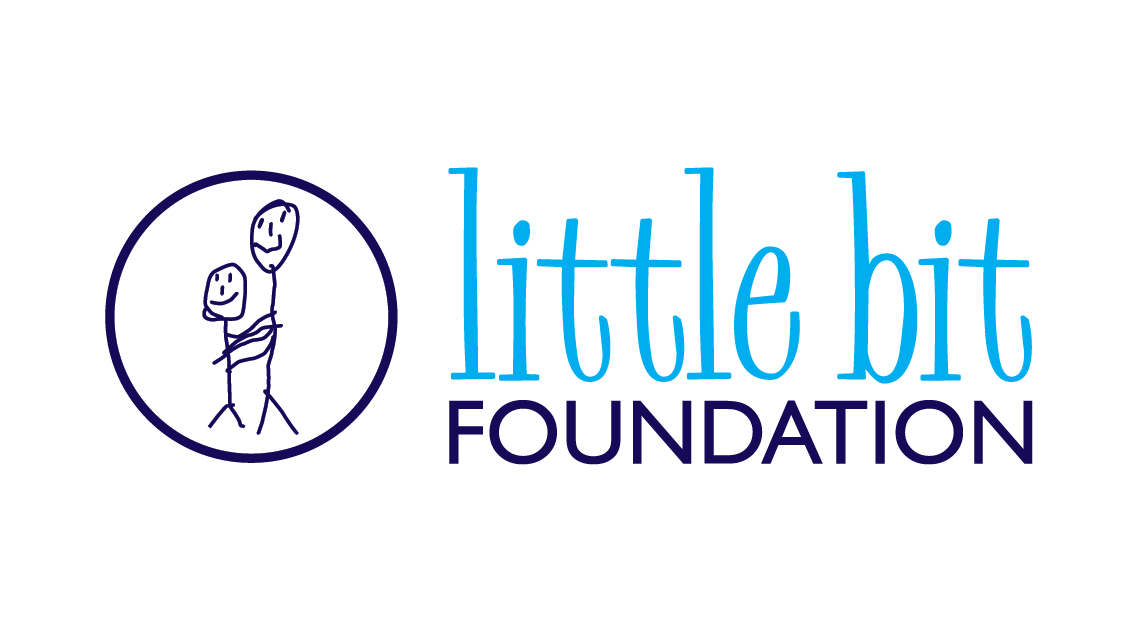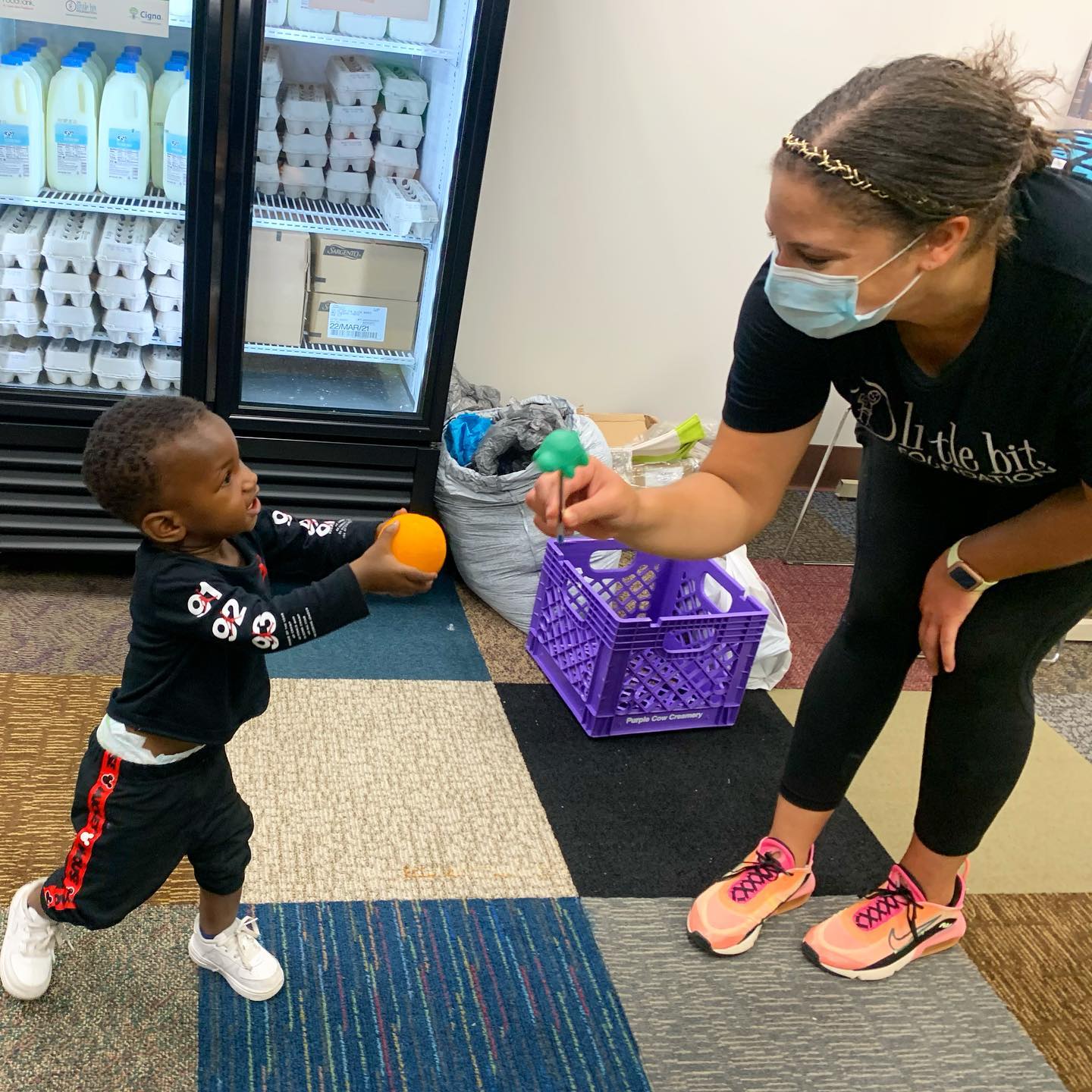“The coolest thing about my job is being able to make relationships with the students and families we serve,” says Rachel Jones. As Little Bit Senior Manager of Health and Wellness, Jones executes the daily activities of programs that address students’ physical and emotional health, and others that help close the gap for families dealing with food insecurity. “I also like how each of these programs allows us to observe and respond to other needs,” she says.
One of the programs that “really enables a wraparound model,” she says, is Healthy Kids, Better Learners. Made possible through a partnership with IFM Community Medicine and SLU School of Nursing, the program provides wellness checks and health education to Little Bit schools every spring semester; this year reaching 12 schools. Three nurse practitioners from IFM oversee the in-school clinics, held on Wednesdays at various schools, during which the nursing students check each student’s vitals, height/weight, teeth, vision, hearing and social-emotional state, while asking questions related to food security, home environment and such. Some school clinics take place over two consecutive Wednesdays, depending on the number of students to be seen at the school.
During the clinic, nursing students also visit classrooms with lesson plans they have prepared on topics requested by the school, such as good nutrition, and healthy hygiene and behaviors. “It’s really a win all around, as many schools are functioning without school nurses these days, parents are able to keep up with physical exam requirements, and the nursing students are getting real-world experience in different types of communities,” says Jones. “For the kids, it’s not only a first line of defense against disease or illness, but also helps them become more comfortable with health professionals. Some of them really ‘come to life’ after their checkup, because they’ve had all the attention for a little while.”
Jones helps coordinate these days of service, scheduling between the schools and IFM, printing and collating consent forms, being present during clinics to ensure all students are seen, and scanning the completed physicals for needed follow-ups while making all the required copies. This is when she takes note of additional needs.
“An examiner might write down her concerns about the student’s mental health and access to enough food, for instance, and so I’ll make sure they are connected with the school’s behavioral health counselor, or elsewhere if there isn’t one, and receive food bags through Little Bit’s Sunny’s Closet program,” says Jones. A large majority of referrals are for dental and vision issues, and “thankfully, there are many partner organizations we can refer them to for follow-up exams,” she says.
Since being promoted to her role in November 2020, Jones says the greatest need she’s witnessed has been consistent access to food. “For a time after the stimulus checks went out, our service numbers actually went down, but they are definitely going back up,” she says. Little Bit manages three unique school-based food programs across several schools, in partnership with Operation Food Search (OFS) and Saint Louis Area Foodbank.
The first, Sunny’s Closet, provides schools with bags of easy-to-prepare, shelf-stable food intended to get students through the evenings and weekends. The bags are filled by Operation Food Search based on numbers Jones has confirmed with each school and delivered to Little Bit every other Monday, where they are either picked up and delivered by the Little Bit school volunteers or, for larger orders, distributed to schools by Jones and new volunteer Allen Fox, “who’s wonderful…and has a big vehicle!” she says. Jones says that each school utilizes Sunny’s Closet differently, based on what works best for them. “Some will deconstruct the bags to create a food pantry, some will only use for emergency needs, while others will give to each student to take home.”
In five Little Bit schools located in areas designated as food deserts, Jones helps manage free family food markets in partnership with Saint Louis Area Foodbank. She is on hand to accept bimonthly deliveries of fresh, frozen and shelf-stable food items from the Foodbank and Fresh Thyme, since “most schools don’t have the time to do this,” she says. She also conducts routine quality checks of the items and equipment in the markets, and is present during open hours every week for each market to assist families and/or students with finding items, even giving them menu tips on occasion. More than 540 families have been served in the markets so far this school year. “Both the parents and the schools are so grateful for the markets because they know what a negative impact hunger has on learning,” says Jones.
For the wider community, Little Bit hosts monthly mobile food markets in conjunction with the Foodbank at three schools. The Foodbank will pull up with pallets of a “whole mix of things,” says Jones, such as vegetables, fruits, frozen meats and bakery items, which are unloaded and broken down by Little Bit staff and volunteers and handed out to families that either walk up or drive through. Jones says each market averages about 50 families coming through per month, who are assisted by “amazing volunteers working out in all kinds of weather.” She adds, “I’d love to see us be able to spread out to more areas with additional markets.”
Jones says that Little Bit also has a vision of integrating health services, such as the IFM wellness checks, into the in-school food markets to create “wellness hubs” and is working on increasing its capacity in health and wellness overall. “There is a lot of need, and we’re always exploring new partnerships and better ways to respond. It’s also a lot of work,” she admits, “but I can’t think of anything more important I could be doing.”

